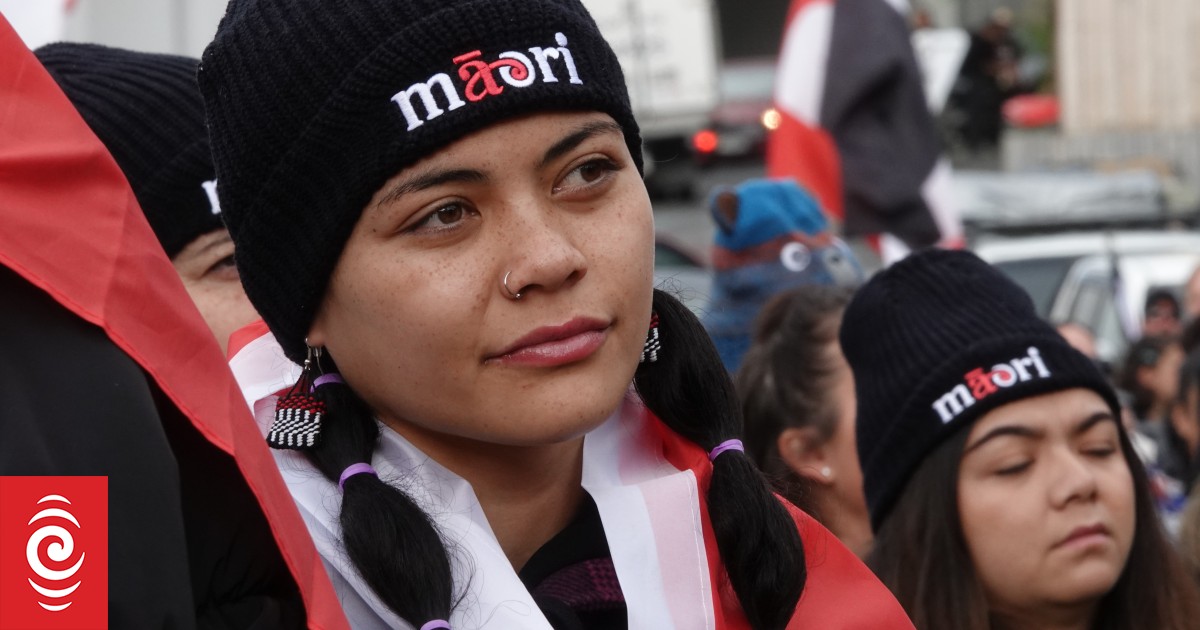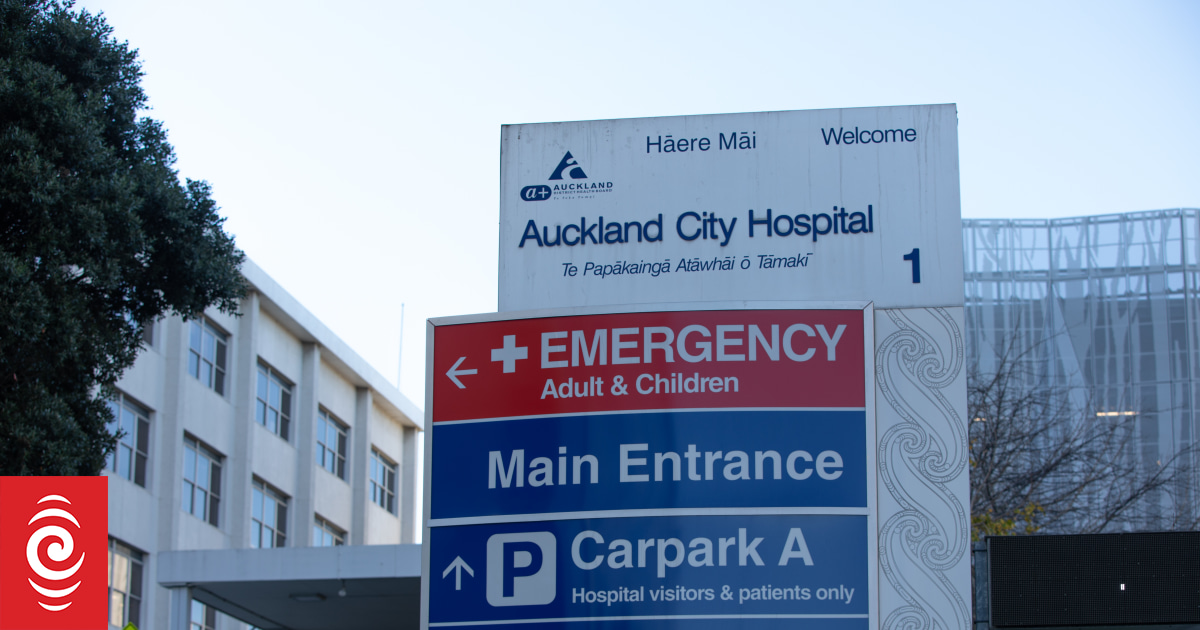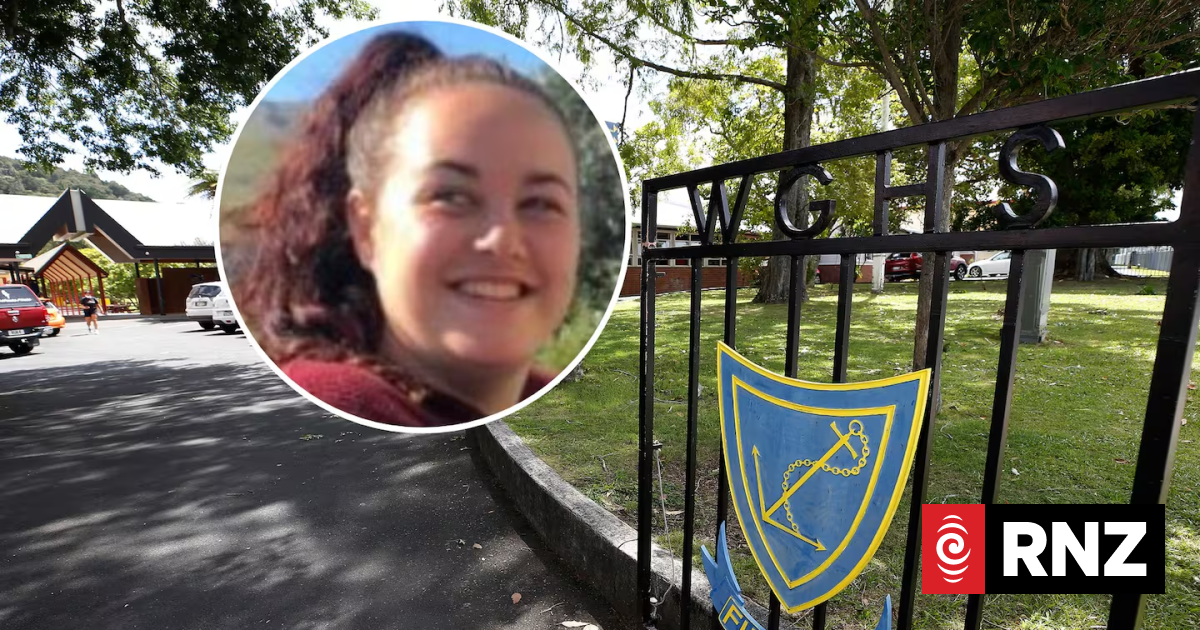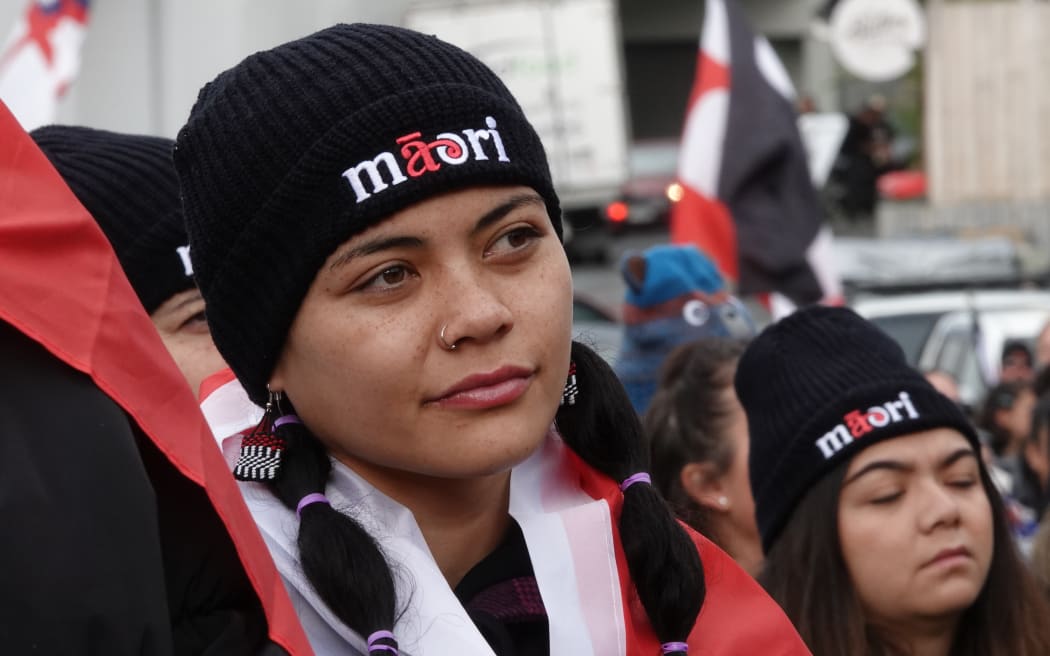
Marchers listen to speeches at Whangārei’s Laurie Hall Park ahead of the hīkoi.
Photo: RNZ / Peter de Graaf
More than 1300 people have marched through Whangārei as part of a national day of action protesting government policies affecting Māori.
The hīkoi is just one of several events around Northland this morning, starting with karakia in Waitangi at 5am, and similar marches through Rāwene and Kaitāia from 9am.
The protests follow a call by Te Pāti Māori for Māori around the country to strike during Budget Day, and follow an earlier day of action in December.
The Whangārei hīkoi started at Laurie Hall Park and made its way up Dent Street to Bank Street – one of the city’s main arteries – as far as the New World supermarket in the suburb of Regent.
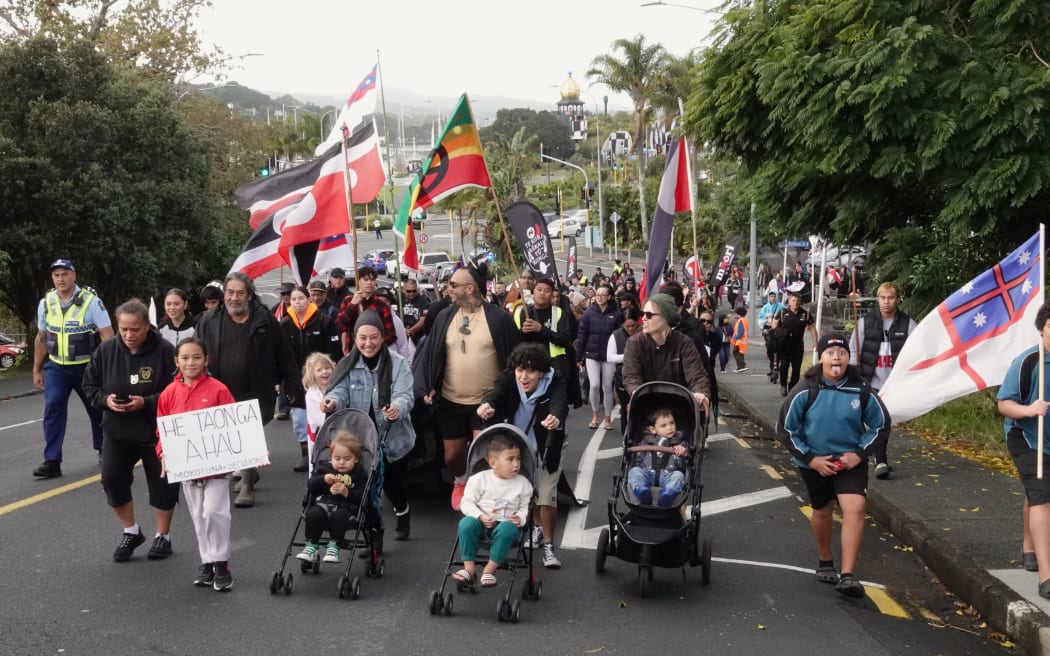
The 1300-strong hīkoi makes its way up the Dent Street hill in Whangārei.
Photo: RNZ / Peter de Graaf
The march, escorted by police on foot, occupied one lane of Bank Street for more than a kilometre and caused disruption to central city traffic.
Despite that there was little of the heckling seen in other centres but many toots of support from passing motorists.
The street was a sea of red, white and black flags, with rousing waiata such as Tutira Mai Ngā Iwi punctuated by the sound of drums and the pūkaea [a traditional wind instrument].
Banners carried serious messages such as Toitu Te Tirtiti [Uphold the Treaty] and Gaza Today, Māori Āpōpō [tomorrow] but the atmosphere was upbeat, even festive.
Other groups marching alongside Māori included Network Waitangi Whangārei, whose mostly Pākehā members carried a banner declaring they stood with tangata whenua.
The first marchers returned to Laurie Hall Park at 10.40am for a mass haka, a free sausage sizzle and more speeches.
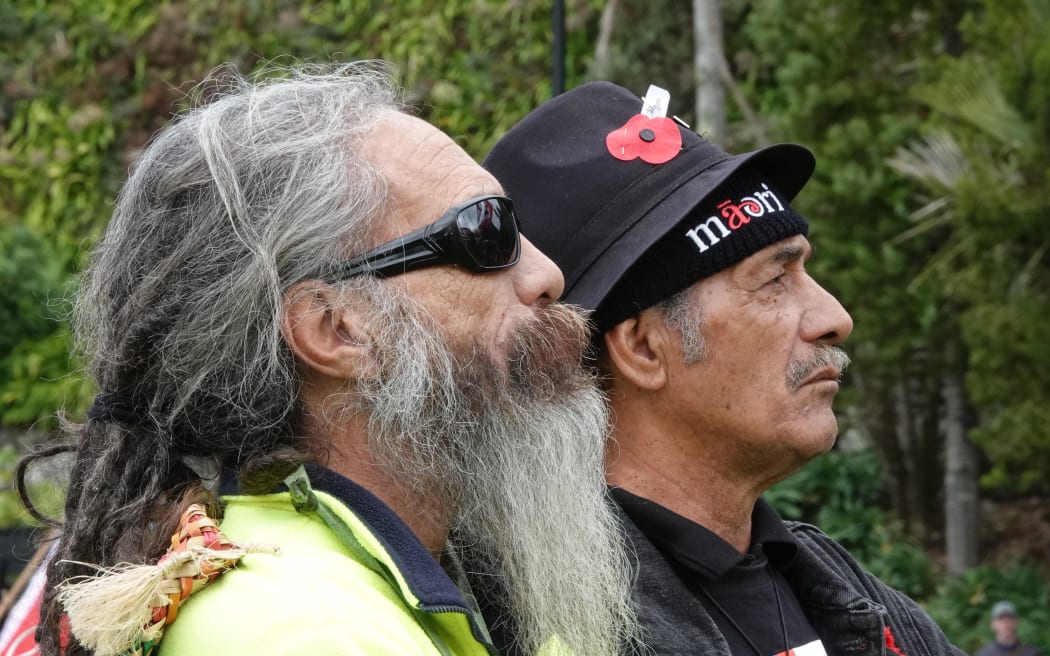
Marchers listen to speeches at Whangārei’s Laurie Hall Park ahead of the hīkoi.
Photo: RNZ / Peter de Graaf
Before the march set out, Whangārei Māori ward councillor Phoenix Ruka applauded the crowd for the risk they had taken with their employers and in some cases even their own whānau by attending.
Ruka said the narrative promoted by the coalition government was that Māori wards were eroding democracy.
“The irony of that is they have given control to 5 percent of the population to get rid of Māori wards,” he said.
“We are protesting not for ourselves alone, but for our tūpuna, our mokopuna, and those who will come after us who we will never meet.”
Earlier, Auriole Ruka, chairperson of Te Pati Māori’s Te Tai Tokerau executive, said the strike had been called on Budget Day to protest a government that was taking Māori out of employment and removing frontline services.
Responding to Prime Minister Christopher Luxon’s statement yesterday that the strike was illegal, she said tangata whenua did not need the government’s permission to strike.
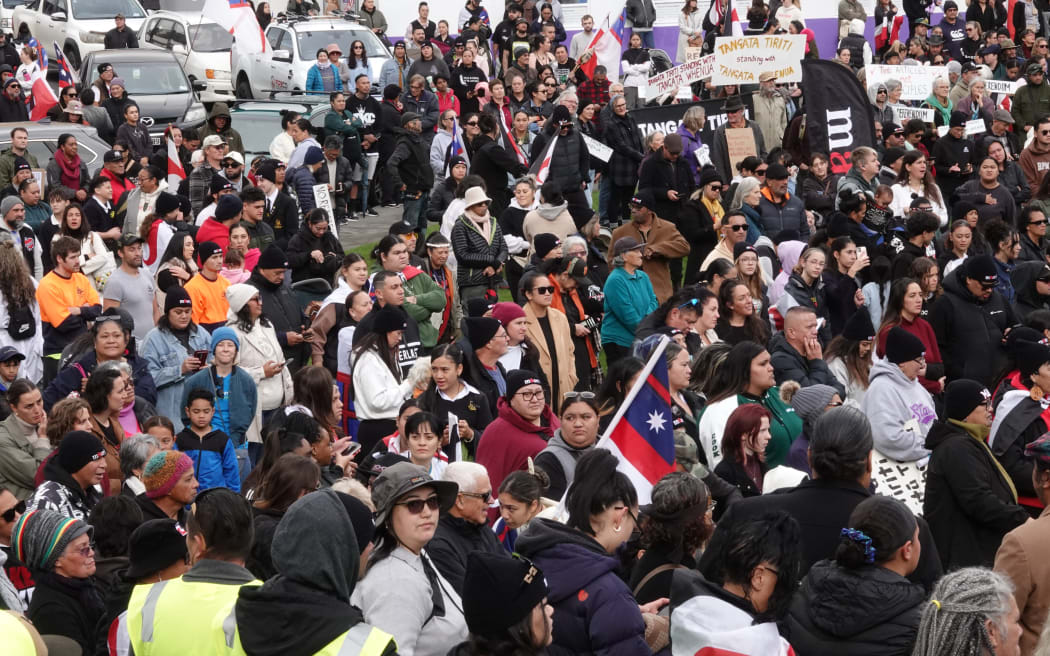
A huge crowd fills Whangārei’s Laurie Hall Park ahead of the hīkoi.
Photo: RNZ / Peter de Graaf
Before the march began, the health and safety coordinator urged the crowd to respond positively to whatever reaction they received.
“Today we’re not going to be eggs, we’re going to behave ourselves, because we are here for our mokopuna,” he said.
He also asked marchers to walk at a mokopuna-kaumātua-kuia pace so no one was left behind.
This morning’s speakers included Ngātiwai chairperson Aperahama Kerepeti-Edwards, who brought his four-month-old grandson Tākiri Tū Te Ata.
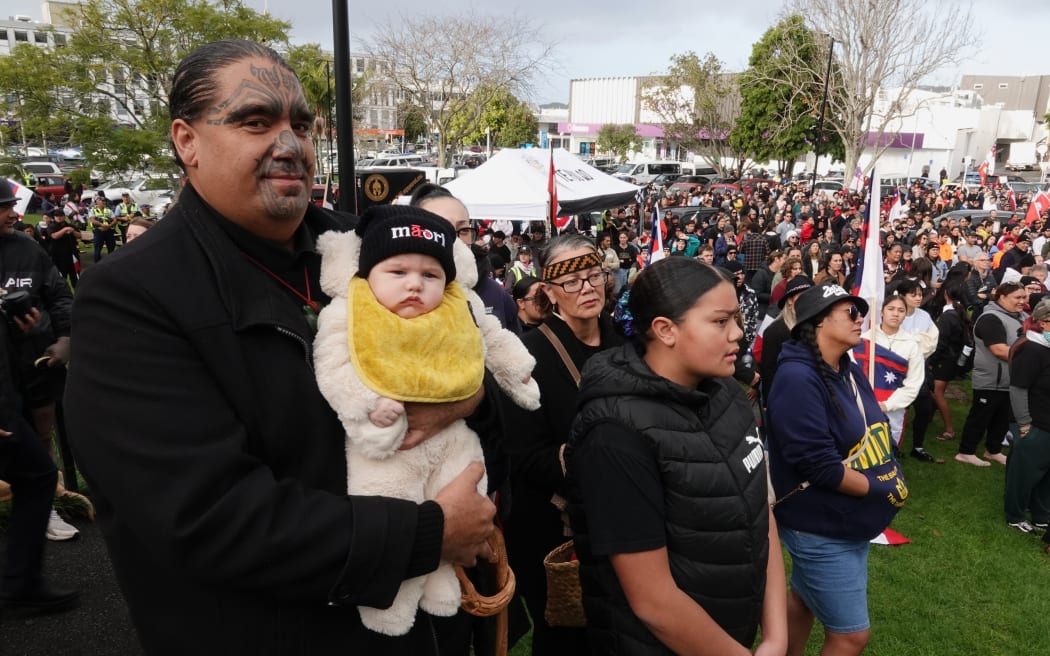
Ngātiwai chairman Aperahama Kerepeti-Edwards brought his four-month-old grandson Tākiri Tū Te Ata, born on the eve of the national gathering at Turangawaewae Marae earlier this year and named in its honour.
Photo: RNZ / Peter de Graaf
The boy was born on the eve of the national gathering at Turangawaeawe Marae earlier this year, also called amid concerns about government policies relating to Māori, and was named in honour of that event.
His name translates as “the coming together in the dawn”.
Today’s Whangārei hīkoi dwarfed even last December’s protest, which drew an estimated 700 people and was one of the biggest around the country.

